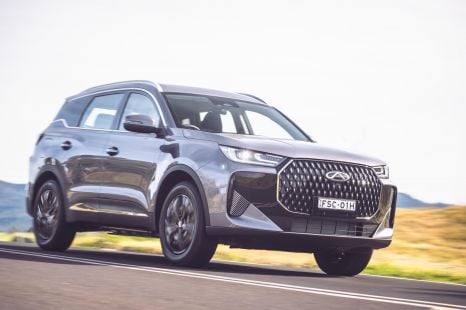

CarExpert.com.au
Chery Tiggo 7 Super Hybrid: The mid-size SUV that rewrites the value equation
9 Hours Ago
The mid-sized premium SUV segment continues to evolve, but the Lexus NX remains atop the sales charts. Is it our top pick though?
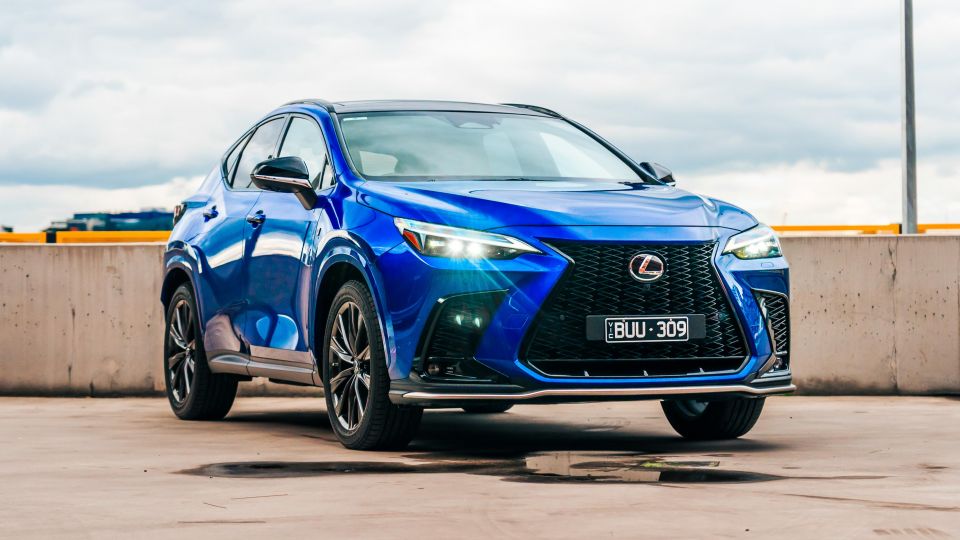
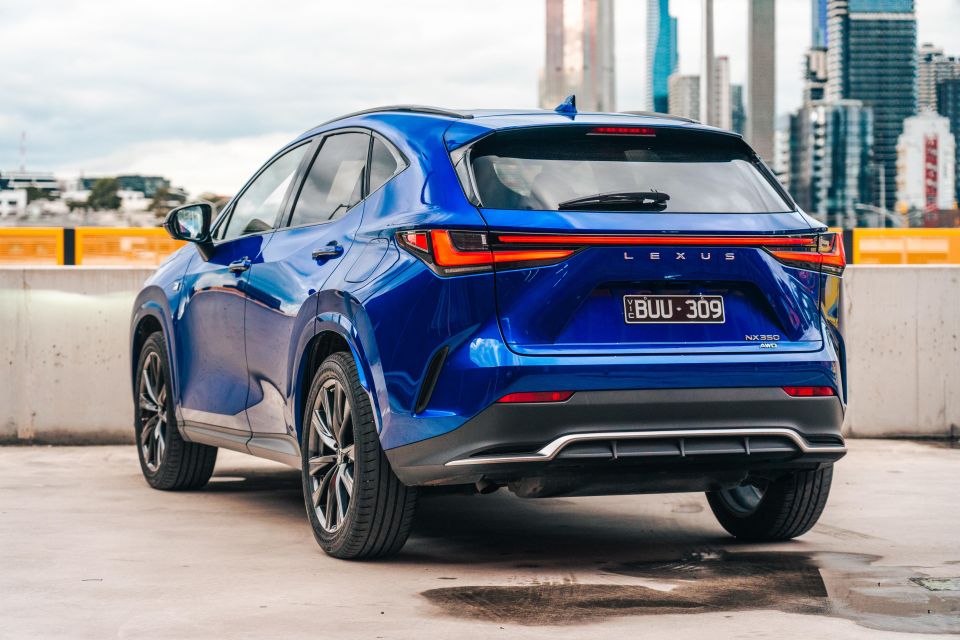

Quickly see how this car stacks up against its competition. Select any benchmark to see more details.
Where expert car reviews meet expert car buying – CarExpert gives you trusted advice, personalised service and real savings on your next new car.
Like its Toyota RAV4 cousin, the latest Lexus NX has enjoyed solid success on the sales charts.

The Japanese luxury SUV has beaten all but the Tesla Model Y in the premium mid-sized SUV segment for the last few years, outselling European stalwarts like the Audi Q5, BMW X3 and Mercedes-Benz GLC.
A lot of that is likely down to two things: pricing and availability of electrification. The NX350h conventional hybrid blends the top-selling efficiency benefits of the RAV4 Hybrid with a more premium and attractive package, while sharper pricing across the range almost makes the NX something of a middle ground between mainstream and luxe.
The NX even offers a plug-in hybrid (PHEV) option – sort of… it’s been unavailable to order for a bit – which the Audi only recently started offering and the Mercedes still doesn’t offer locally. BMW’s previous-generation X3 PHEV is far more expensive and doesn’t offer as much range as the NX450h+, either.
But here we have the oft-forgotten child of the family, the 2025 Lexus NX350 F Sport AWD. It’s the sole variant in the Australian range offering turbocharged petrol power, and it’s pitched as the more driver-focused and athletic option.
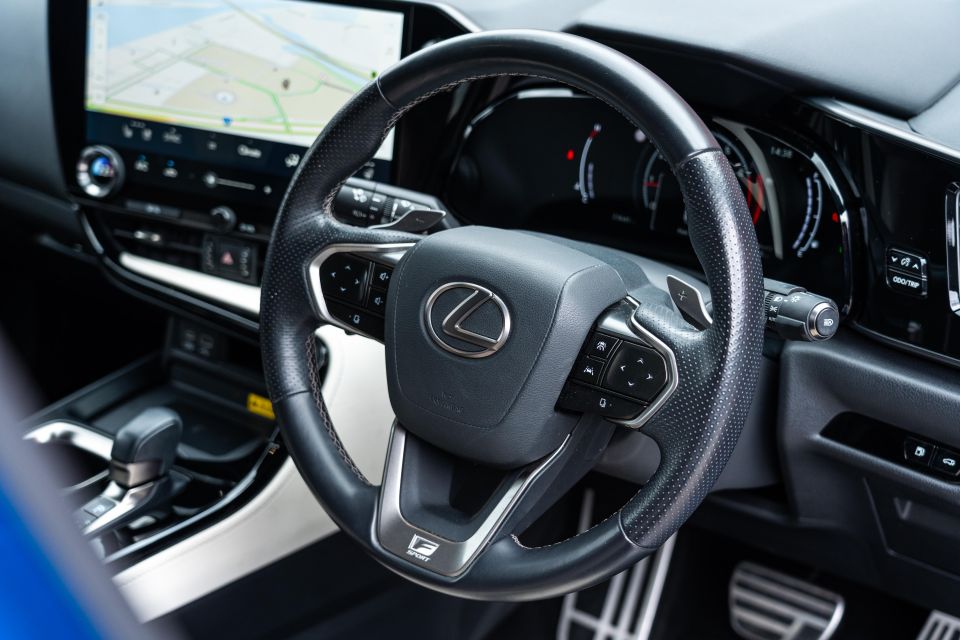
Not much has changed in this grade since I reviewed it a couple of years ago, but the segment has seen a number of shifts, so we thought it was worth revisiting.
Is Lexus Australia’s top-seller better as a turbocharged athlete for keen mum and dad drivers? Or are hybrid versions still the best bet?
The NX350 is only available in F Sport guise with AWD, priced in Australia from $79,343 plus on-road costs. Compared to when I reviewed the NX350 last in 2022, the base price is up by about $1500.
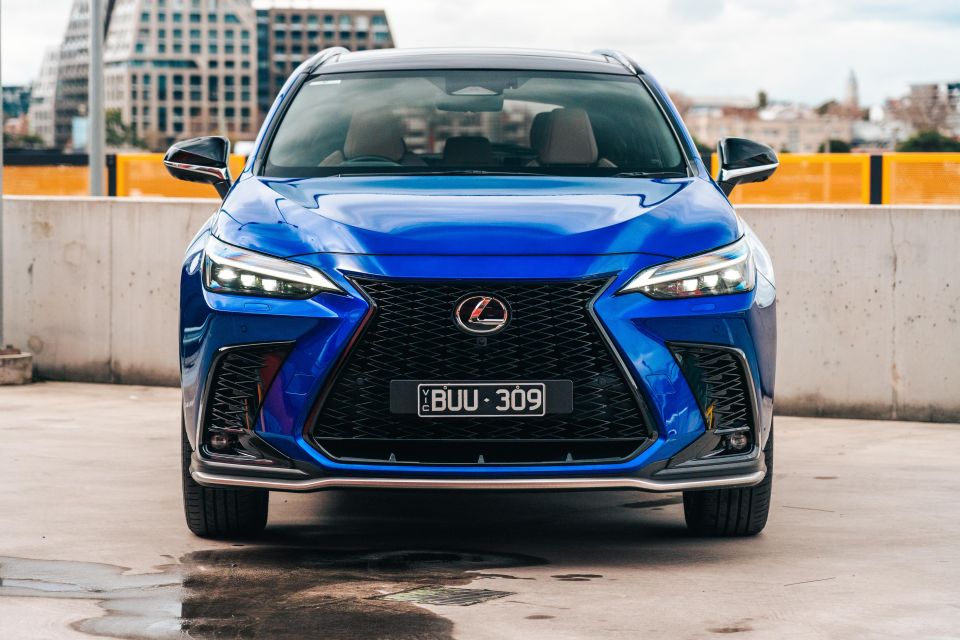
| Model | Price before on-road costs |
|---|---|
| Lexus NX250 2WD | $63,400 |
| Lexus NX350 F Sport AWD | $79,343 |
| Lexus NX350h Luxury 2WD | $71,600 |
| Lexus NX350h Luxury AWD | $76,400 |
| Lexus NX350h Sports Luxury 2WD | $79,100 |
| Lexus NX350h Sports Luxury AWD | $83,900 |
| Lexus NX350h F Sport 2WD | $79,100 |
| Lexus NX350h F Sport AWD | $83,900 |
| Lexus NX450h+ F Sport AWD | $95,900 |
To see how the Lexus NX lines up against the competition, check out our comparison tool
Buy your new car without the stress. It's fast, simple and completely free.

Great service from Travis and team, second time I have used this business would not hesitate to recommend them to anyone
Craig C.
Purchased a Ford Ranger in Sunshine Coast, QLD
CarExpert helped Craig save thousands on his Ford Ranger, now let us save you on your next new car.
Find a dealEven two years on from launch, the Lexus NX feels pretty fresh and upmarket, and there are few obvious links to either its predecessor or its cheaper sibling, the Toyota RAV4.
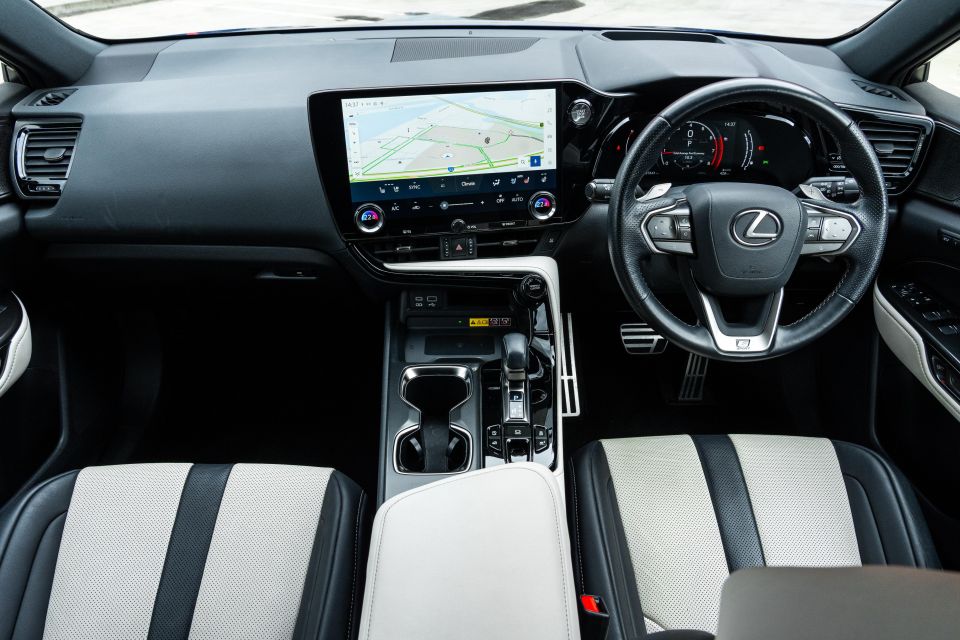
While the exterior design is more of an evolution rather than the revolution compared to its predecessor, it’s pretty hard to see any genetic links to the previous NX inside.
The overhauled cabin minimises switchgear, ups the prominence of digital displays, and does more to separate itself from the related Toyota RAV4.
Lexus products are known for their vault-like build quality and high-end cabin materials. A criticism of the last car was that while it was solidly screwed together, the mix of interior surfaces left a bit to be desired in some places. Further, the look and feel was dated for some time.
This new model certainly presents better, and our tester’s white-on-black interior brings a sense of ‘wow’ factor. I’m a fan of the steering wheel design, the clear digital instruments, and of course the look of that huge 14.0-inch central infotainment system.
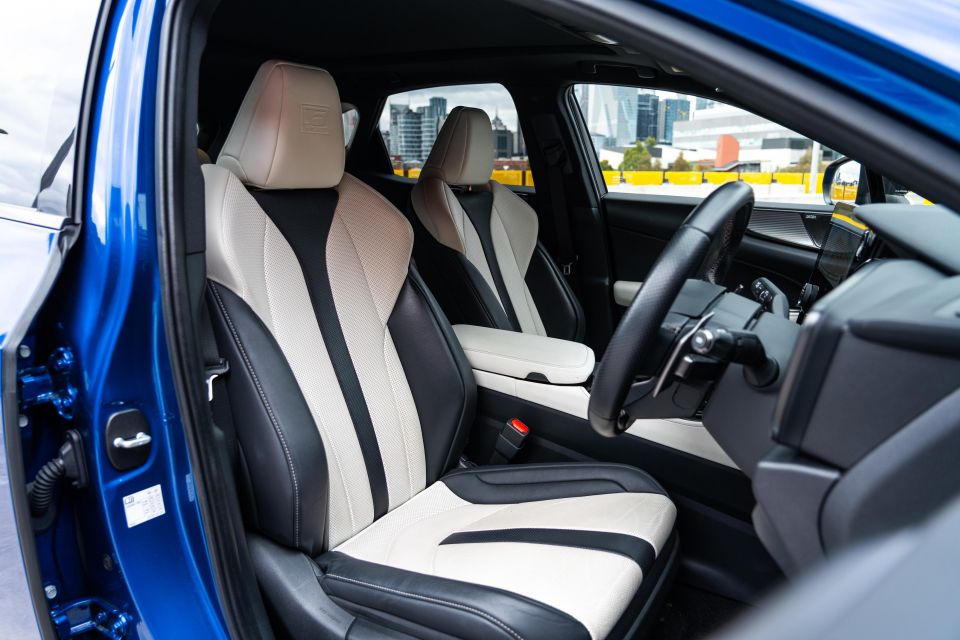
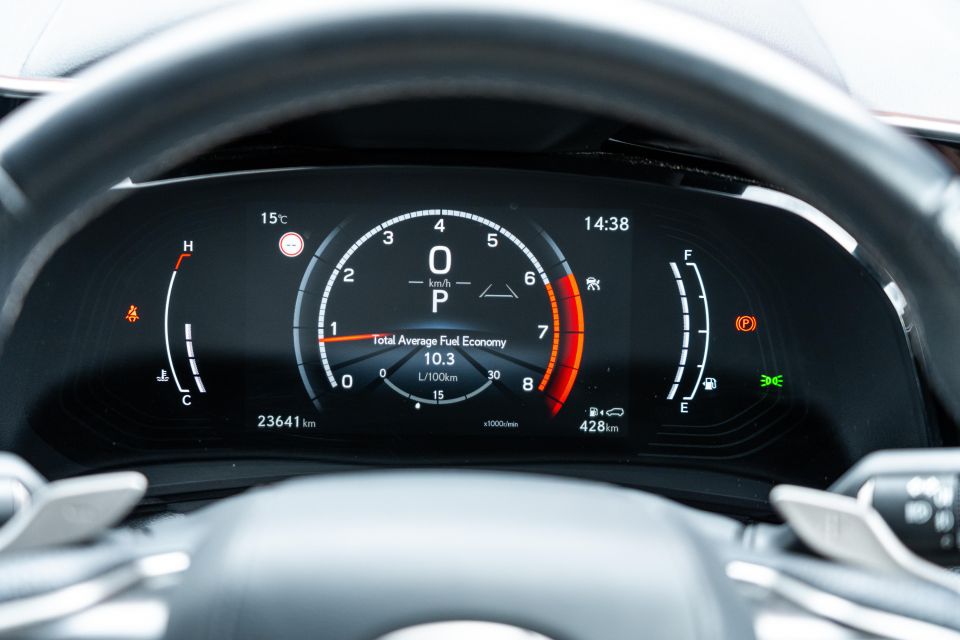
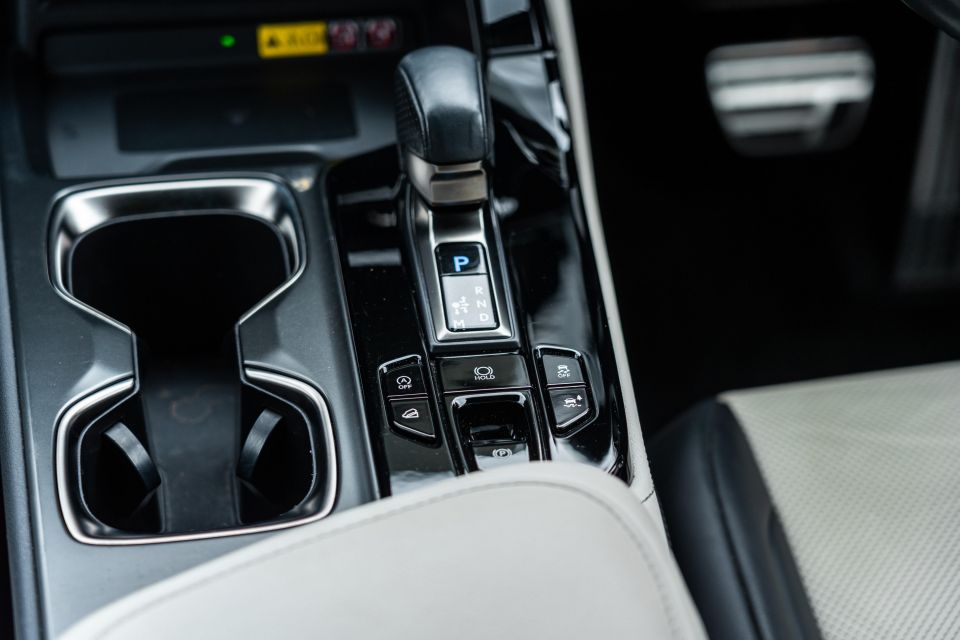
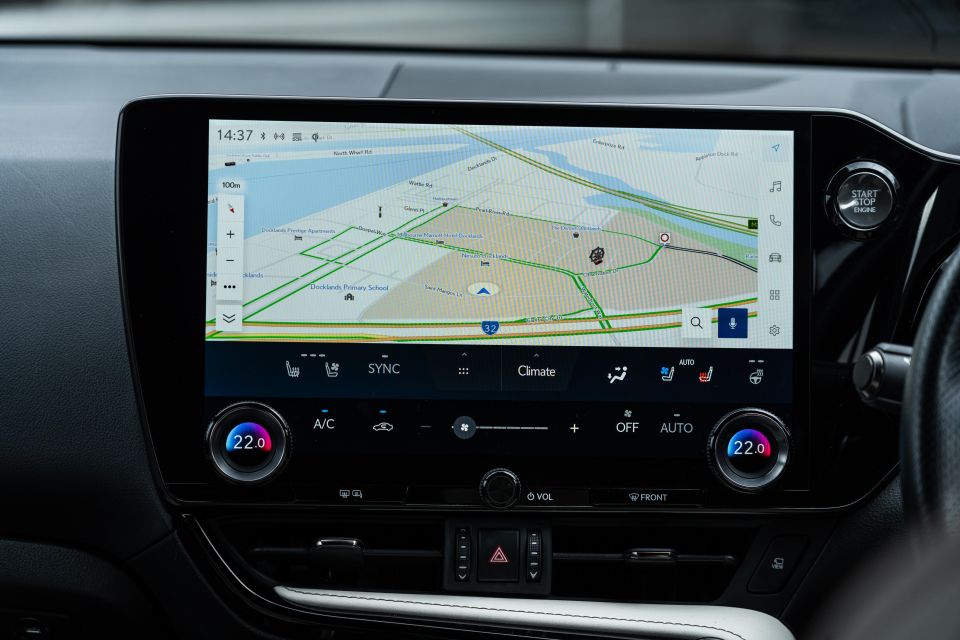
It seems that some of the glossy stuff has come at the expensive of some interior elements, however. The hard, scratchy glovebox trim feels cheap, as do the similar materials used around the switches to the right of the steering wheel. The gloss black parts on the centre console don’t scream ‘luxe’, either.
In all fairness, it’s a little nit-picky to call these things out and owners aren’t likely to care, given these aren’t necessarily high-contact surfaces, but it still doesn’t really scream classic ‘Lexus’ to me.
But the seating position is great. Lexus F Sport seats are some of the best in the business, with figure-hugging bolsters and supportive cushions, complete with a wide range of electric adjustment and memory presets.
A personal highlight of Lexus interiors is the electrically-adjustable steering column, which is still something of a rarity in this part of the market. The fact it’s linked to the seat memory feature is also handy, offering a convenient entry and exit function that shifts the seat back and steering wheel forward to allow easier ingress and egress.
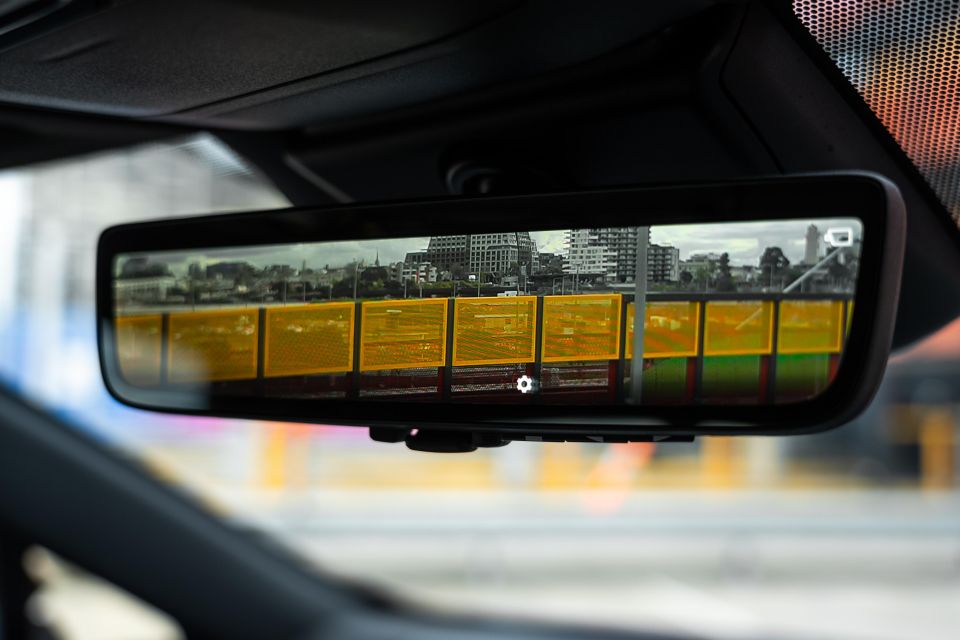
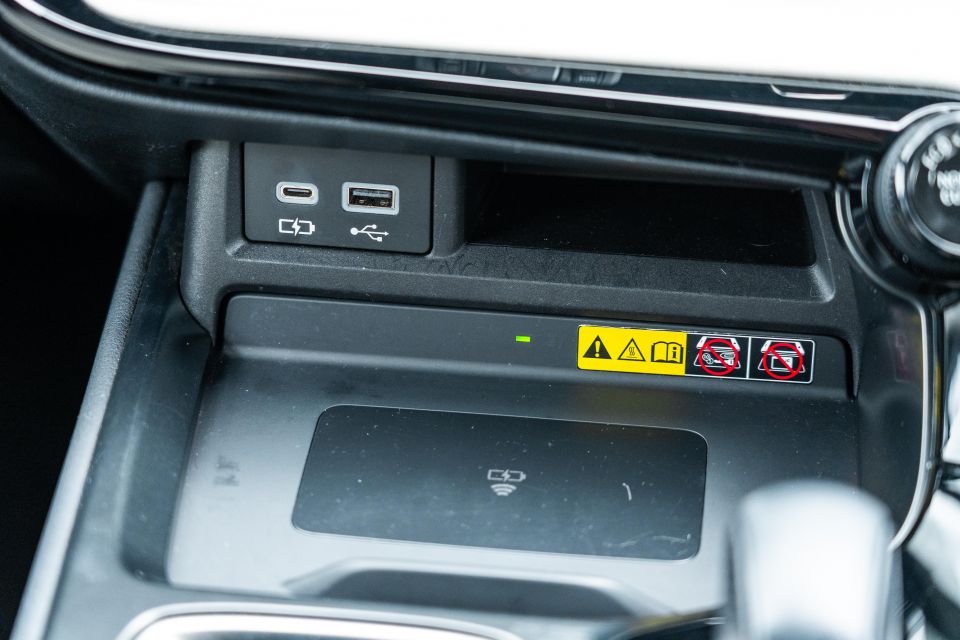
Storage is pretty good, with a large cubby under the front-centre armrest, door bins capable of storing standard-sized bottles, two cupholders in the centre console, as well as a cubby ahead of the shifter, with the lid doubling as a wireless phone charger.
Thankfully, Lexus added wireless Apple CarPlay as a running update, so the wireless phone charger is more than just a shelf when you’re hooked up to smartphone mirroring.
Overall, the software is a vast improvement from previous Lexus technology. The refresh times and graphics are better, and distance the premium Lexus brand from its Toyota parent.
Resolution and response from the 14.0-inch display is excellent, and there’s smartphone-like pinch to zoom functionality and smooth animations between menus and functions.
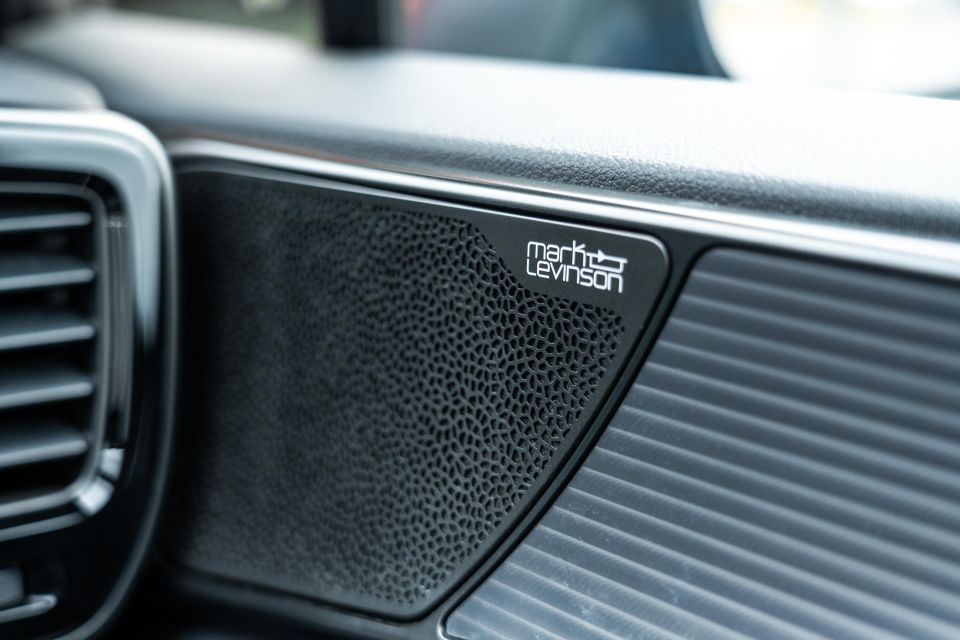
However, it still lacks the high-end feel of rival systems from Audi and BMW, as well as Mercedes-Benz, as it’s a little too close in appearance to the Toyota system on which it’s based. However, the ‘Hey Lexus’ intelligent voice assistant can perform party tricks like adjusting the climate or opening the sunroof.
A real highlight is the optional 17-speaker Mark Levinson premium audio system – it’s worth ticking the Enhancement Pack 2 box alone for this. Mark Levinson systems are consistently some of my favourites, with deep and clear surround sound.
The second row of seats is less impressive than the first, and highlights the NX’s dimensional shortcomings against competitors like the GLC and X3.
At 6’1″, I didn’t have particularly comfortable accommodation behind my own driving position, with limited knee and legroom. I can only imagine the (lack of) space behind for someone taller.
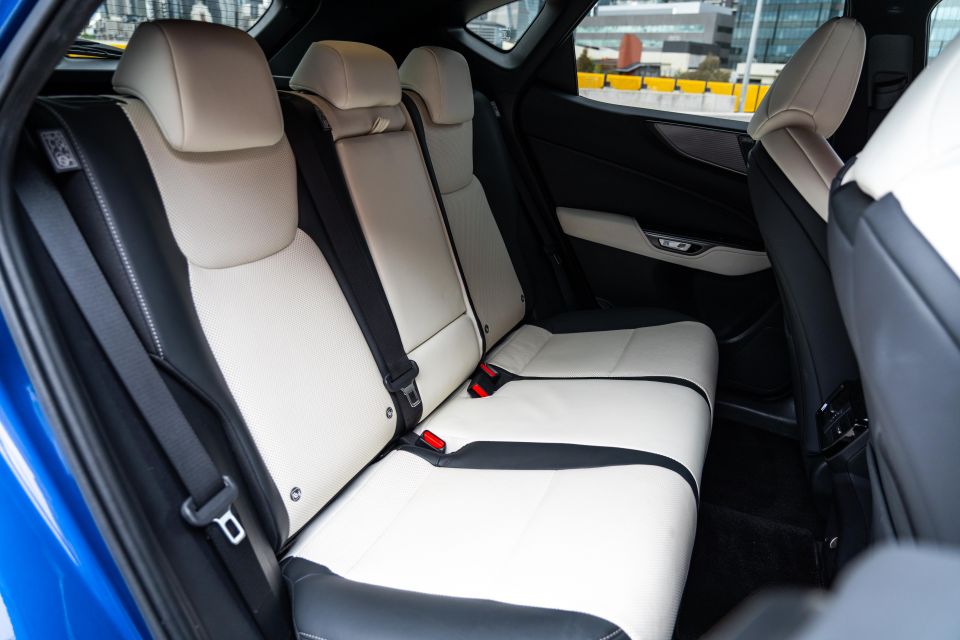
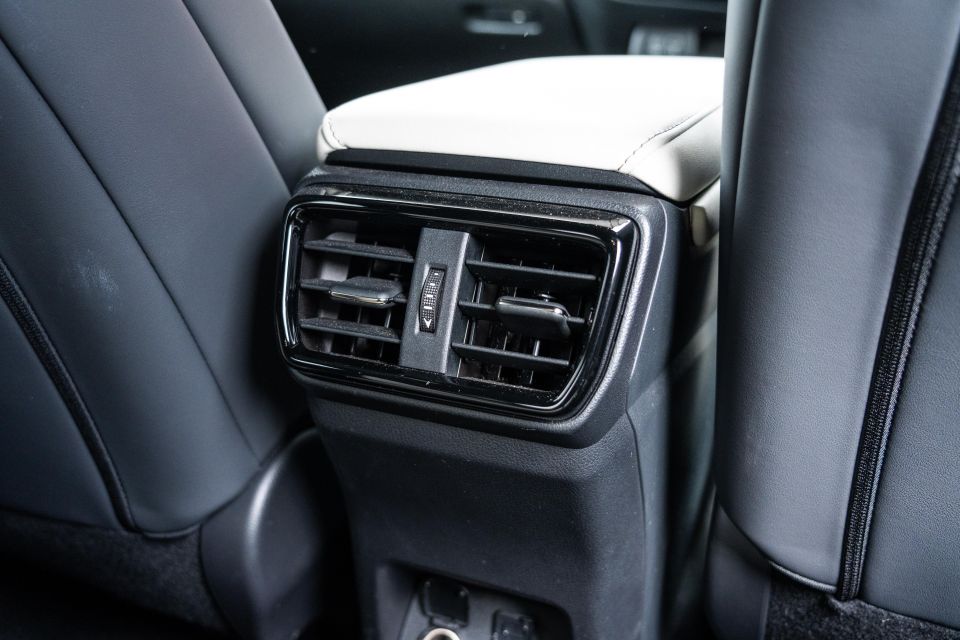
Kids and smaller adults should be fine back here if the front occupants are of average height, and there are ISOFIX child seat anchors for the outboard positions as well as top-tether points across all three rear seats.
Amenities in the back include a fold-down centre armrest with cupholders, directional rear air vents (though no third zone of climate), USB charging points and a 12V socket, as well as map pockets behind both front seats. There are also bottle holders in the rear doors.
The boot measures an impressive 520 litres with the rear seats in use, a handy 20L increase over its predecessor. Drop the second row and the quoted volume raises to 1141 litres.
It’s worth noting, however, that the BMW X3 (550L/1600L) and Mercedes-Benz GLC (550L) offer more space, while the Audi Q5 is similar in five-seat form (520L) but offers more capacity with the rear seats folded (1520L).
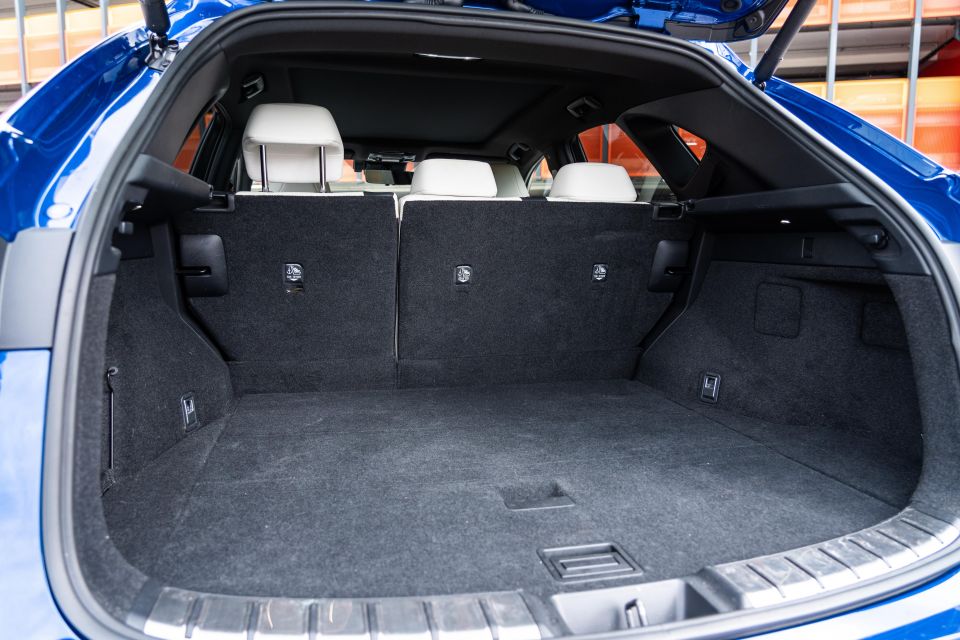
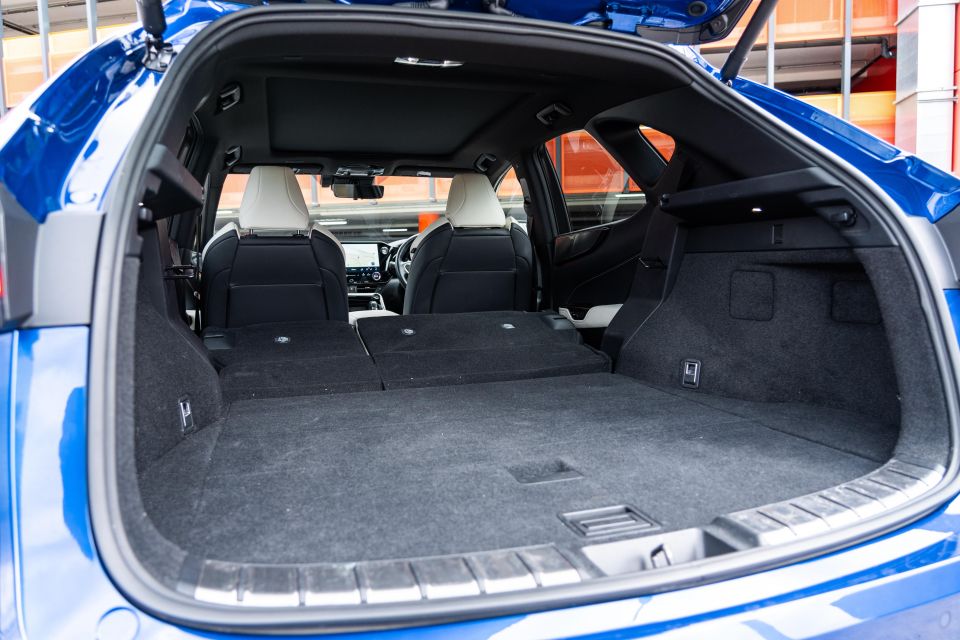
As you can see from the images above, the load area isn’t completely flat in two-seat guise either, though there’s no annoying hump between the boot floor and seat backs.
Handy boot extras include a netted cubby in the side, underfloor storage, as well as a 12V power socket.
| Dimensions | Lexus NX350 F Sport AWD |
|---|---|
| Length | 4660mm |
| Width | 1865mm |
| Height | 1670mm |
| Wheelbase | 2690mm |
| Cargo capacity | 520 litres – seats up 1141 litres – seats folded |
To see how the Lexus NX lines up against the competition, check out our comparison tool
The NX350 AWD is the sole turbo-petrol offering in the lineup.
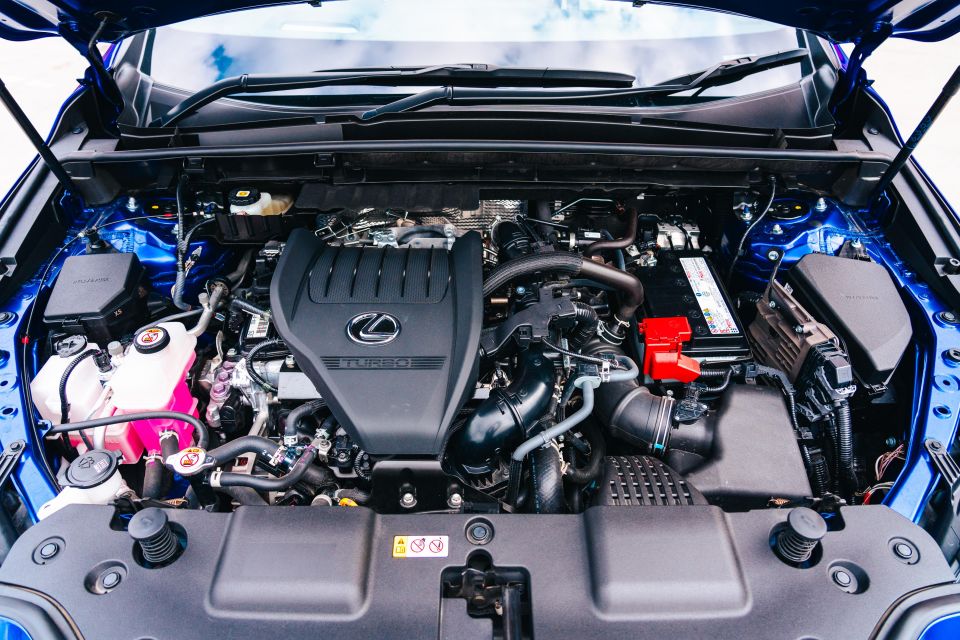
| Specifications | Lexus NX350 F Sport AWD |
|---|---|
| Engine | 2.4L 4cyl turbo-petrol |
| Power | 205kW at 6000rpm |
| Torque | 430Nm at 1700-3600rpm |
| Transmission | 8-speed auto |
| Drive type | All-wheel drive |
| Weight | 1860kg – kerb |
| 0-100km/h (claimed) | 7.0 seconds |
| Fuel economy (claimed) | 8.1L/100km |
| Fuel tank capacity | 55 litres |
| Fuel requirement | 95 octane premium unleaded |
| CO2 emissions | 181g/km |
| Emissions standard | Euro 6b |
| Braked tow capacity | 1000kg |
Our real-world consumption hovered around the 10-11L/100km mark in daily commuting, with a mix of high-traffic city driving and freeway stints. The NX350h will return half that, for reference.
To see how the Lexus NX lines up against the competition, check out our comparison tool
Given the ‘350’ badging and sporty looks of this NX variant, I was hoping for a budget warm SUV experience with the NX350 F Sport. Put nicely, those expectations weren’t really met.
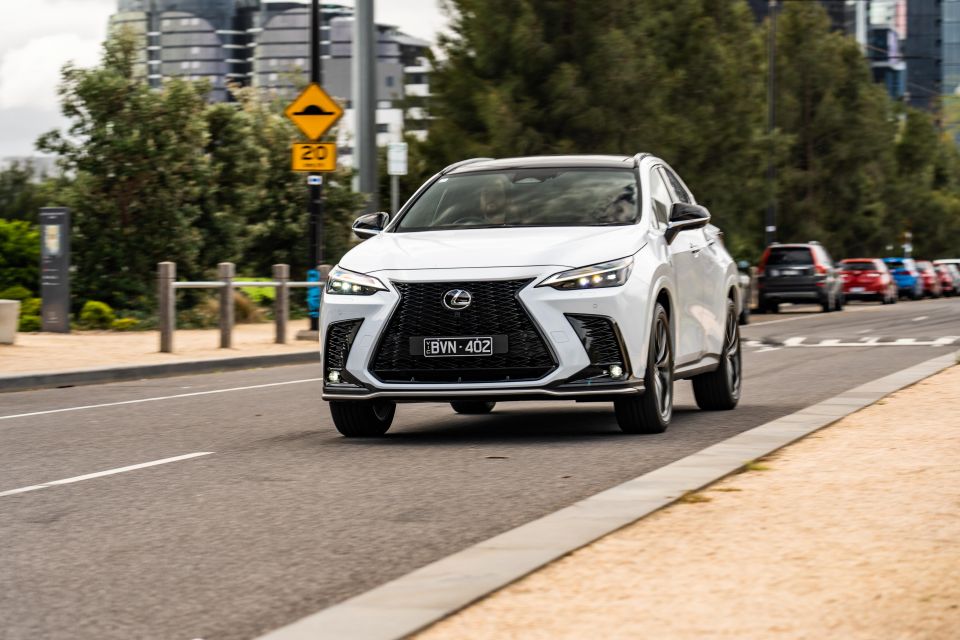
The 2.4-litre turbo-petrol engine offers pretty strong outputs on paper compared to the likes of the Audi Q5 45 TFSI, BMW X3 xDrive30i and Mercedes-Benz GLC300, but the real-world performance and soundtrack leave a bit to be desired.
Little has been done to make the NX350’s powertrain sound or feel particularly sporty, with a buzzy engine note and strong but not super eager engine response better suited to relaxed driving and touring. Lexus claims a 7.0-second dash from 0-100km/h, which feels right by the seat of the pants, but it’s slower than the aforementioned Germans.
The eight-speed auto has also been tuned more for efficiency in its standard setting, so rolling response can be a little laggy if you suddenly punch the throttle. The drivetrain has a bit of a boosty feel and isn’t as linear, nor does it feel as responsive, as BMW’s excellent 30i four-cylinder powertrain.
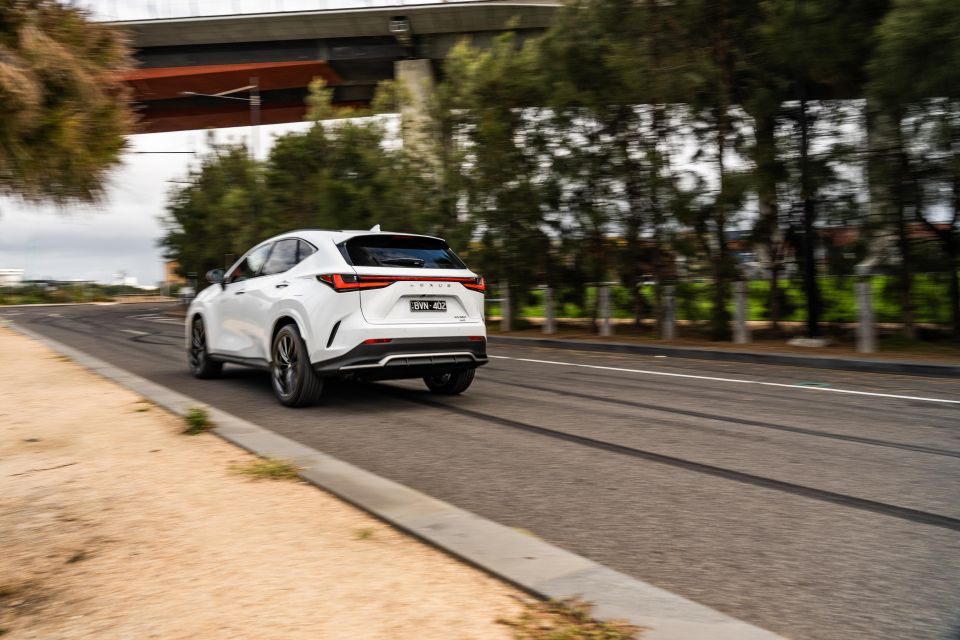
You can flick it into Sport mode for enhanced throttle response and weightier steering, but this is a Lexus at the end of the day and it’s best suited to more relaxed inputs and straightline cruising.
It’s also worth noting the NX powertrain is front- rather than rear-biased like most rivals, meaning it sometimes spins up the front tyres under hard acceleration. It has that pull feel, rather than the push you get from a rear-driven vehicle.
Refinement is usually a Lexus strongpoint, but it’s lacking in the NX. Tyre roar from those big 20-inch alloys and skinny 235/50 Bridgestone Alenza rubber is worse than you’d expect of a Lexus SUV, and as noted earlier the petrol engine can get vocal when pushed.
Considering the F Sport badge has historically been seen on silky smooth, brassy sounding petrol V6s, I thought Lexus would have put in more effort. It’s not all bad, though.
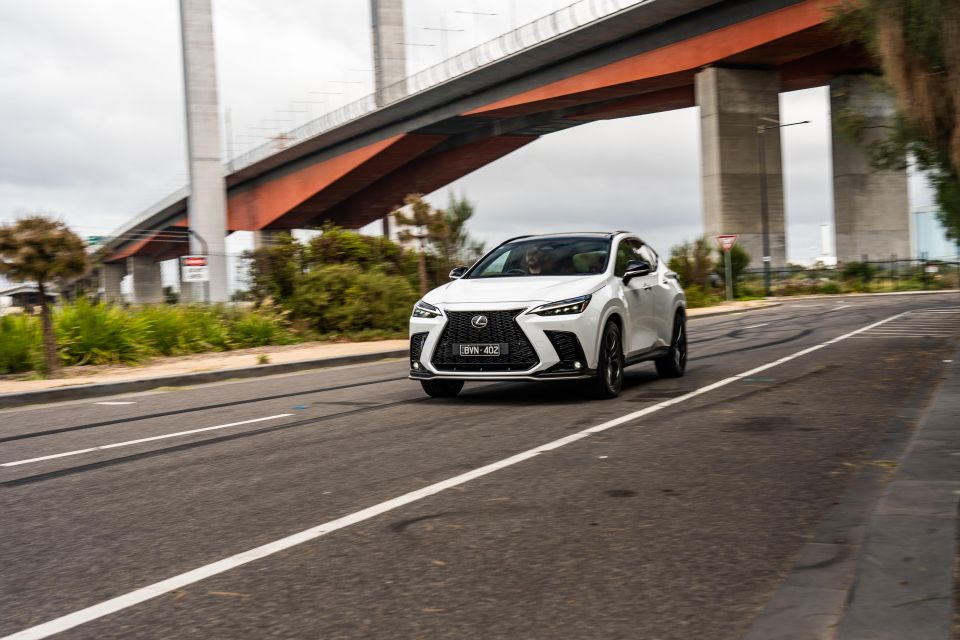
Where expert car reviews meet expert car buying – CarExpert gives you trusted advice, personalised service and real savings on your next new car.
The Toyota GA-K architecture that forms the foundation of the Lexus NX is a proven platform that underpins well-regarded products like the current RAV4 and Kluger, and the NX350 F Sport’s sporty chassis tune improve the dynamics further.
Sharp turn-in and responsive, accurate steering makes the NX a cinch to thread through city streets and winding B-roads, and body roll is nicely minimised when you navigate a sharper bend.
It rides decently, if not with the finesse of its smaller-wheeled platform mates, with a fairly stiff rebound particularly at the rear end over sharper hits.
I’d suggest keeping the Comfort mode engaged in the city, as the F Sport’s Adaptive Variable Suspension (AVS) adjustable damping system strikes a good balance between comfort and control over pimpled inner-city streets.
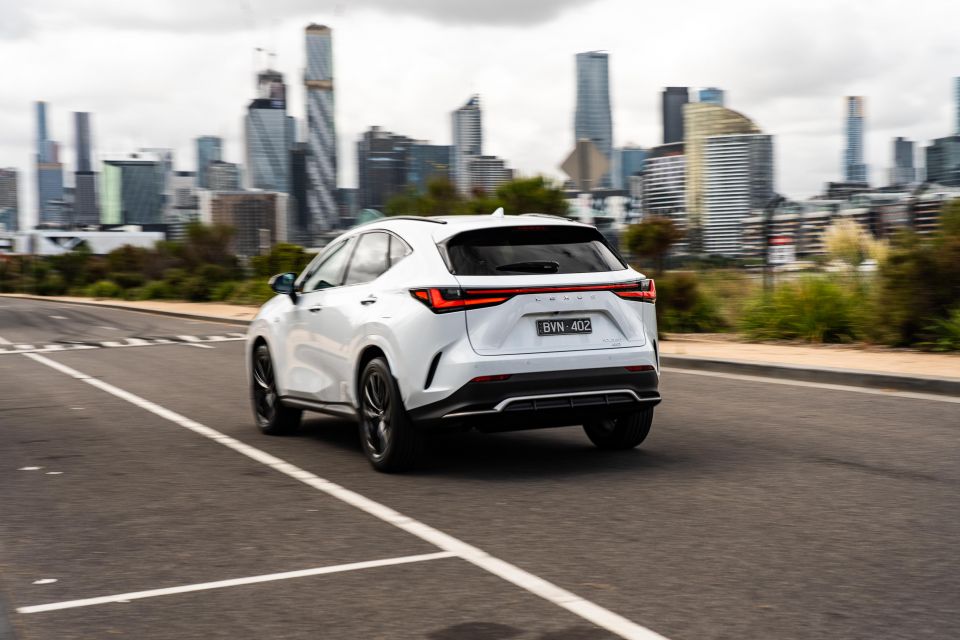
Lexus’ driver assistance systems have received high praise from ANCAP, and in practice they do a good job of helping the driver without completely taking over, like we’ve seen in previous Lexus products.
The adaptive cruise and Lane Trace (centring) systems combine nicely to offer convenient semi-autonomous highway driving, and aids like blind-spot monitoring, rear cross-traffic assist and surround-view cameras all have daily driving benefits.
What’s not so great, at least for me, are the finnicky controls that operate them. Lexus has made the switch to configurable touch-capacitive controls on the steering wheel, which are fiddly on the move when using adaptive cruise – and when cruise is active you’re unable to switch through views or menus in the instrument cluster.
It’s perhaps less fiddly than the systems you’ll find in the latest Volkswagens, for example, but while former colleague Mike Costello warmed to the Lexus at the Australian media launch, I wasn’t so fond even after a week of living with the NX.
To see how the Lexus NX lines up against the competition, check out our comparison tool
There’s plenty of standard equipment in all Lexus NX variants, as you’d expect of a Lexus.
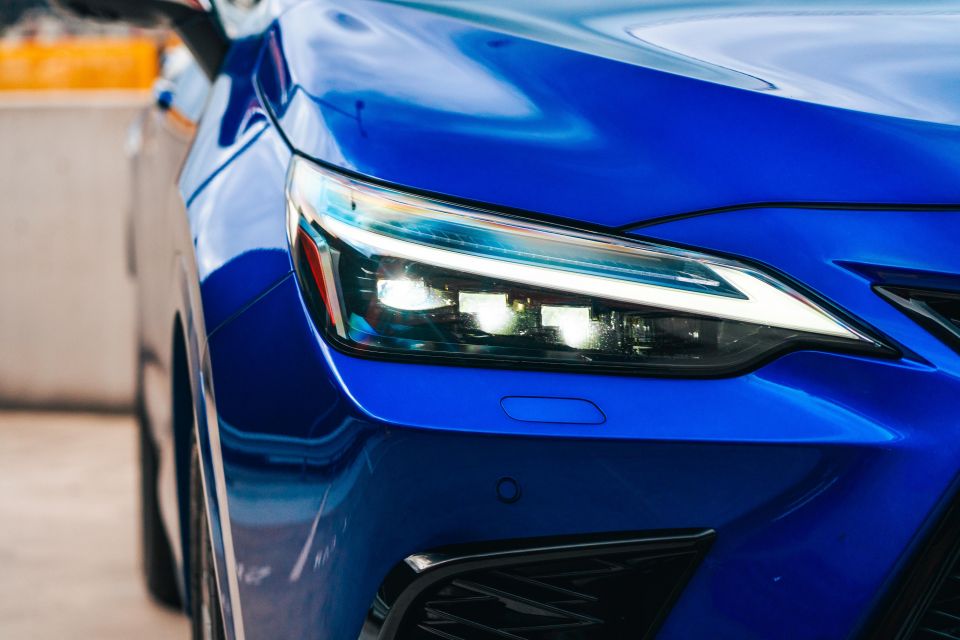
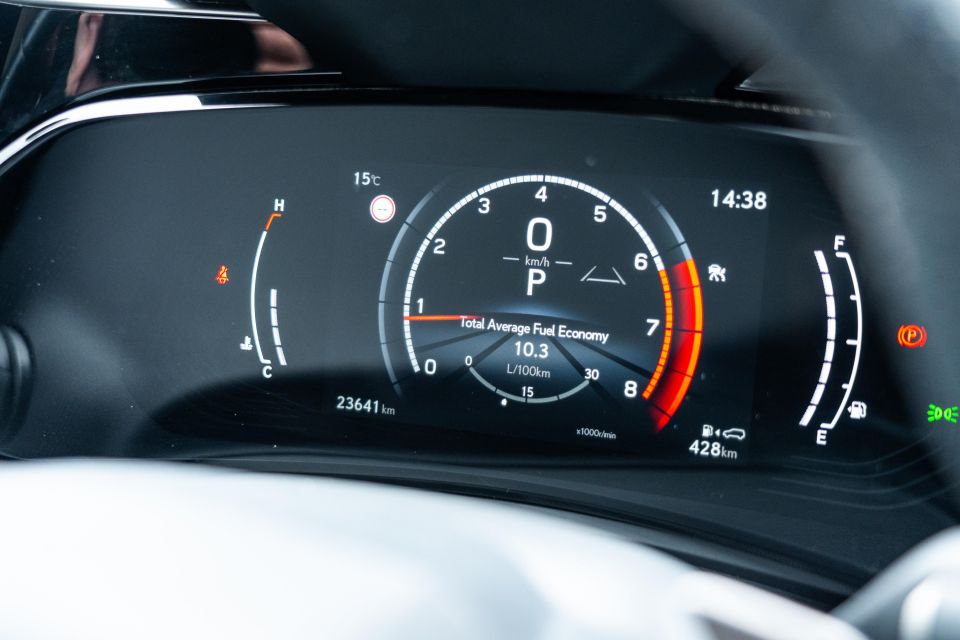
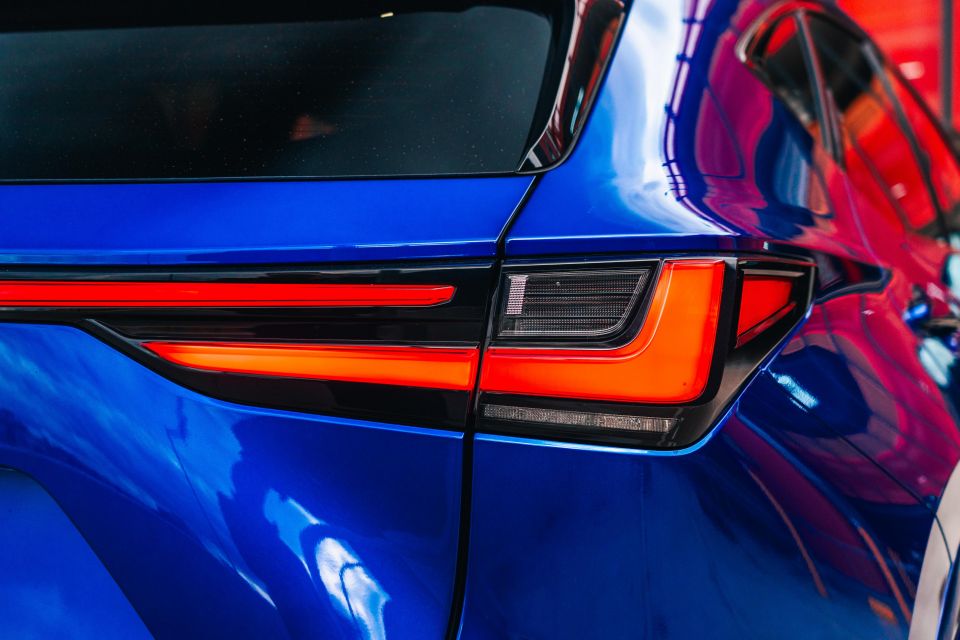
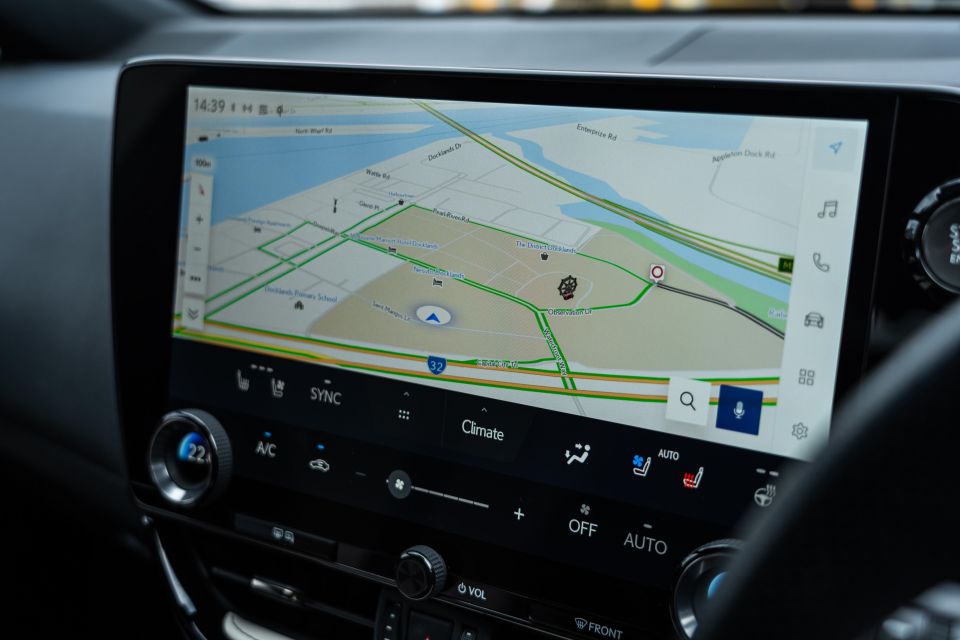
NX250 and NX350h Luxury equipment highlights:
Enhancement Pack ($3000) adds:
NX 350 F Sport and NX 350h F Sport add:
Enhancement Pack 1 ($3000) adds:
Enhancement Pack 2 ($6000) adds:
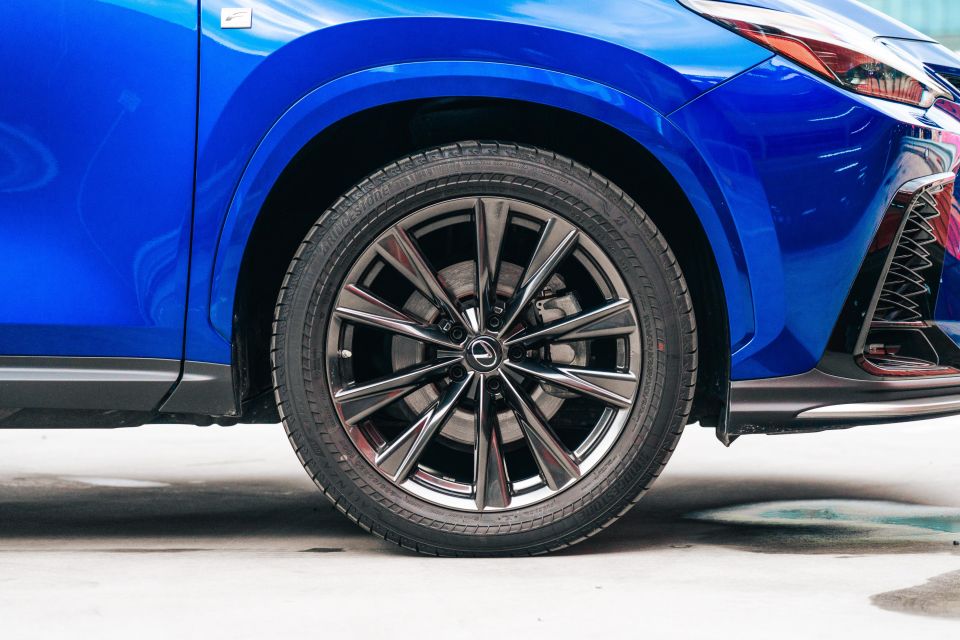
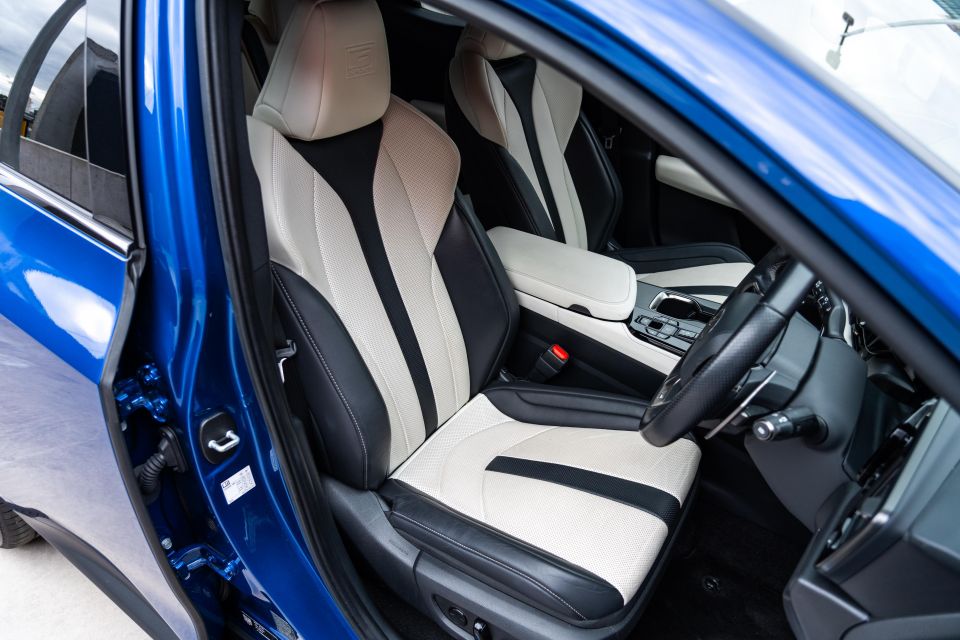
NX350h Sports Luxury adds – over Luxury:
Enhancement Pack 1 ($3000) adds:
Enhancement Pack 2 ($6000) adds:
NX450h+ F Sport adds – over F Sport:
To see how the Lexus NX lines up against the competition, check out our comparison tool
The Lexus NX received a five-star ANCAP safety rating based on testing conducted by Euro NCAP.
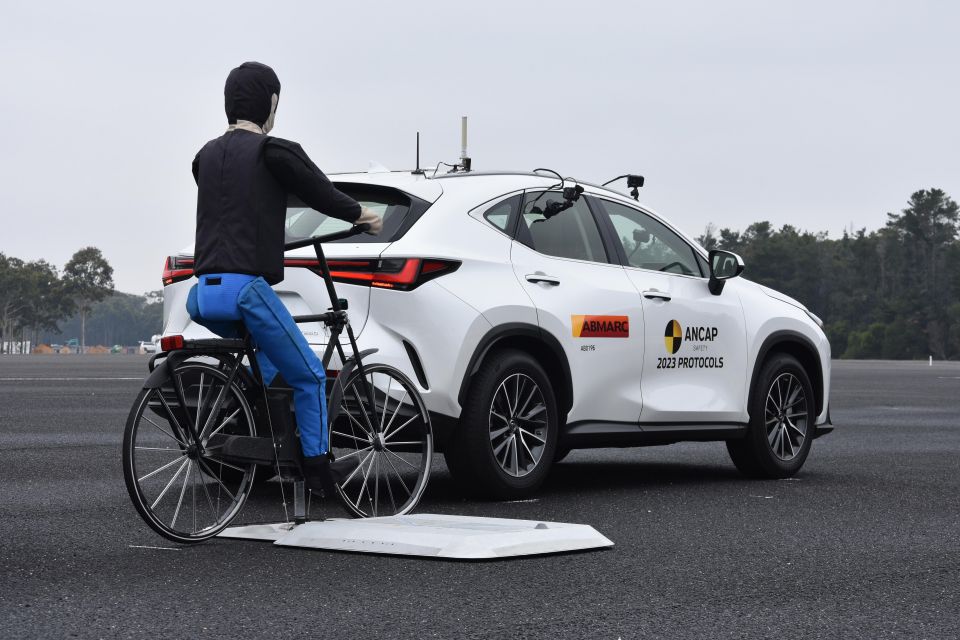
| Category | Lexus NX |
|---|---|
| Adult occupant protection | 91 per cent |
| Child occupant protection | 89 per cent |
| Vulnerable road user protection | 83 per cent |
| Safety assist | 92 per cent |
Standard safety equipment includes:
Every new NX also comes with a three-year complimentary subscription to Lexus Connected Services.
To see how the Lexus NX lines up against the competition, check out our comparison tool
The Lexus NX is backed by a five-year, unlimited-kilometre warranty, like the broader Lexus range.
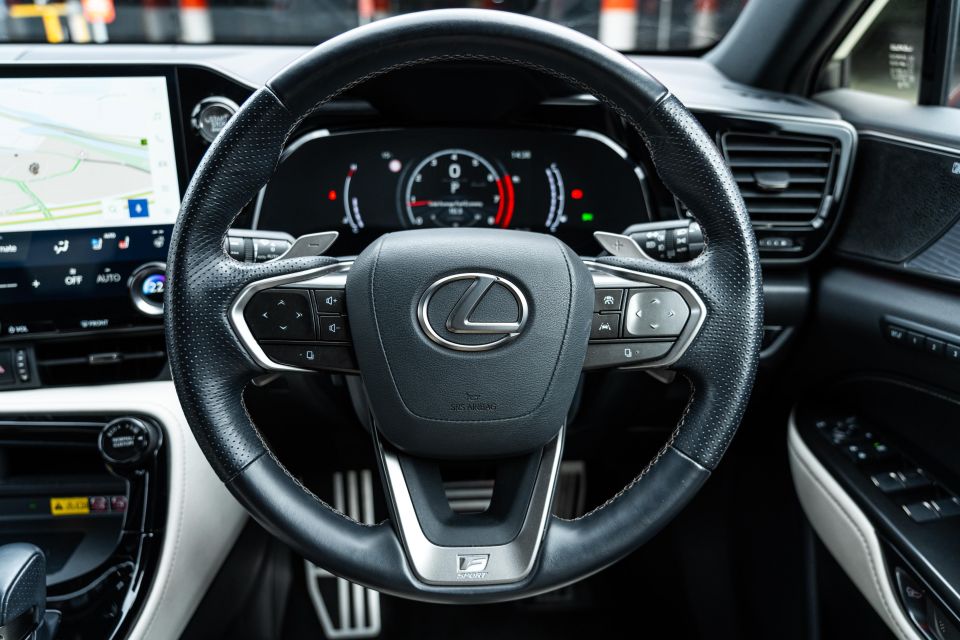
| Servicing and Warranty | Lexus NX350 |
|---|---|
| Warranty | 5 years, unlimited kilometres |
| Roadside assistance | 3 years |
| Service intervals | 12 months or 15,000 kilometres |
| Capped price servicing | 5 years or 75,000 kilometres |
| Total capped price service cost | $595 per service $2975 total |
Worth noting is that while the capped-price servicing program has been extended from three to five years, the individual service costs have increased from $495 to $595 a pop.
To see how the Lexus NX lines up against the competition, check out our comparison tool
While it maintains an attractive price deficit compared to equivalent rivals from Germany, the 350 wouldn’t be my pick of the NX lineup – if anything, it’s a couple of rungs down the ladder.
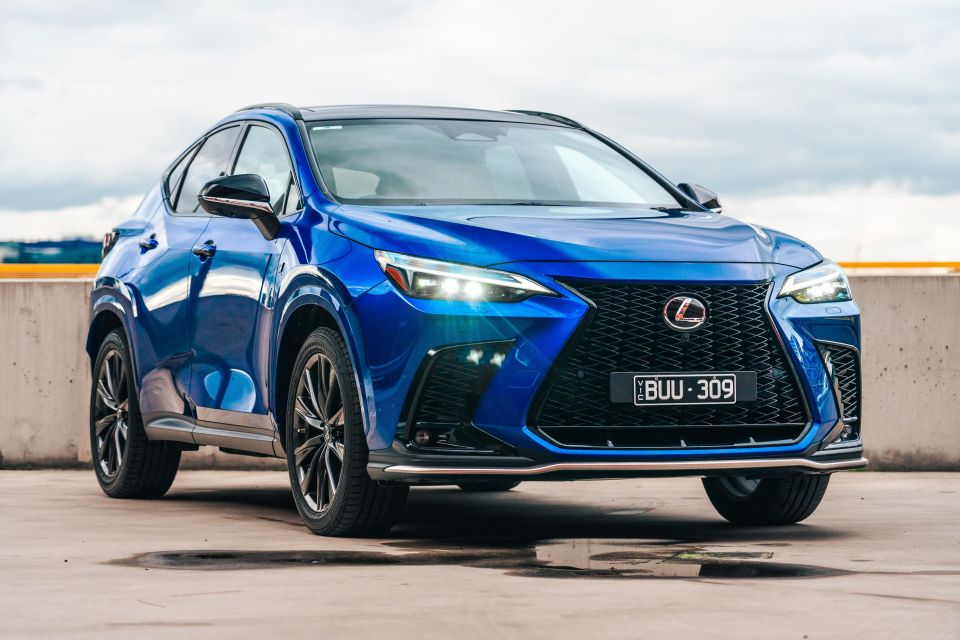
Sure, it offers strong value for money in terms of engine specs and standard equipment, but there’s no real USP or benchmark aspect to this spec. The hybrids offer a point of difference with class-leading efficiency, for example.
At $80,000 before on-road costs, the NX350 F Sport AWD isn’t far off the likes of the Audi Q5 45 TFSI quattro Sport ($88,315) or the upcoming new-gen BMW X3 20 xDrive ($84,500) which, despite being down on power, will arguably be a more practical and more premium-feeling vehicle than the Lexus.
While the F Sport looks are sexy, my advice if you’re getting an NX is to go for a 350h in Luxury trim with the Enhancement Pack – you’ll have all the kit you need as well as excellent fuel economy, and still have change compared to the vehicle you see on test here.
Otherwise, if you’re looking for a premium mid-sized SUV for the family with some sporting intent, the new X3 will likely be a better bet. Better still, if you can still get one, stretch to a runout Porsche Macan (from $95,100).
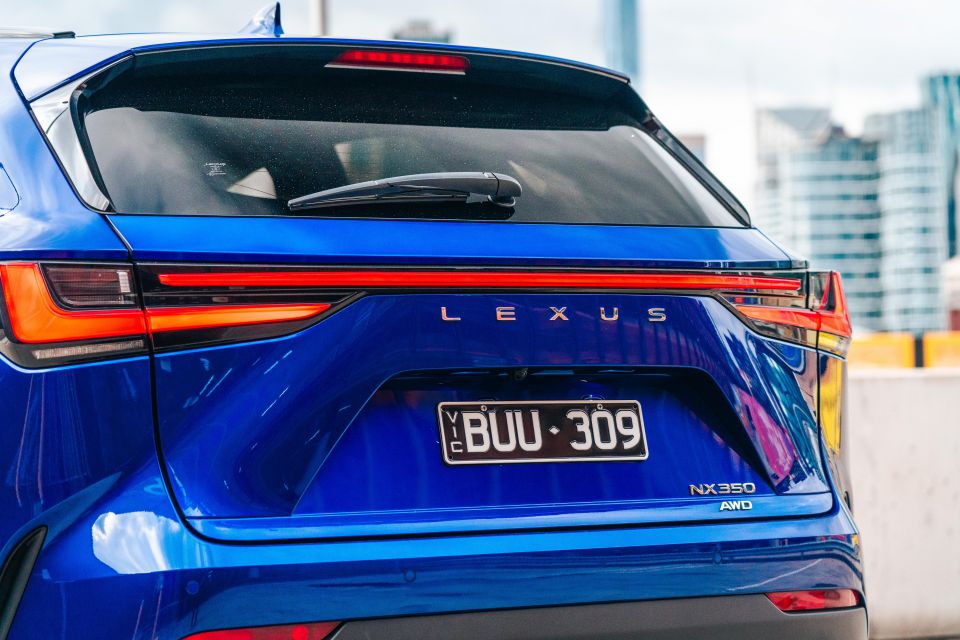
Interested in buying a Lexus NX? Get in touch with one of CarExpert’s trusted dealers here
Click the images for the full gallery
MORE: Everything Lexus NX
Where expert car reviews meet expert car buying – CarExpert gives you trusted advice, personalised service and real savings on your next new car.
James Wong is an automotive journalist and former PR consultant, recognised among Australia’s most prolific motoring writers.


CarExpert.com.au
9 Hours Ago
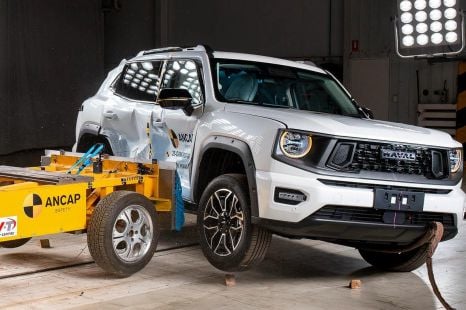

James Wong
12 Hours Ago
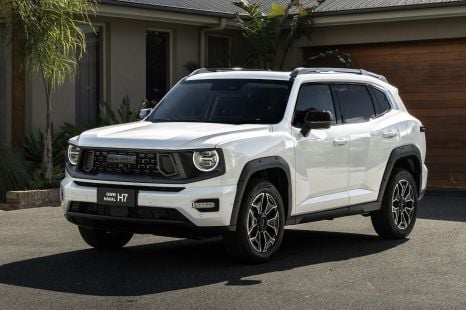

William Stopford
14 Hours Ago
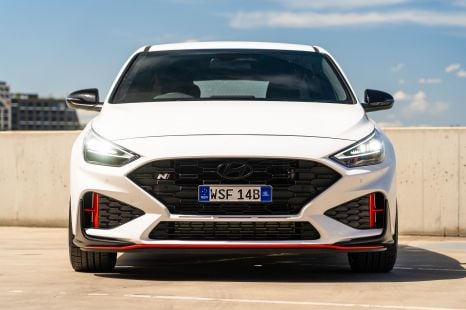

William Stopford
10 Days Ago


Gautam Sharma
12 Days Ago
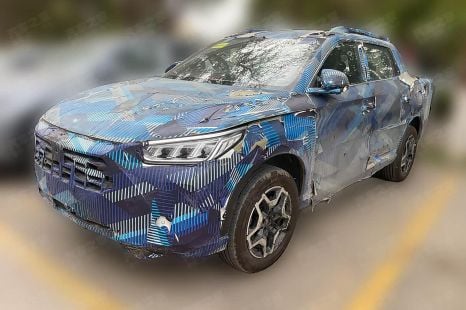

Derek Fung
15 Days Ago